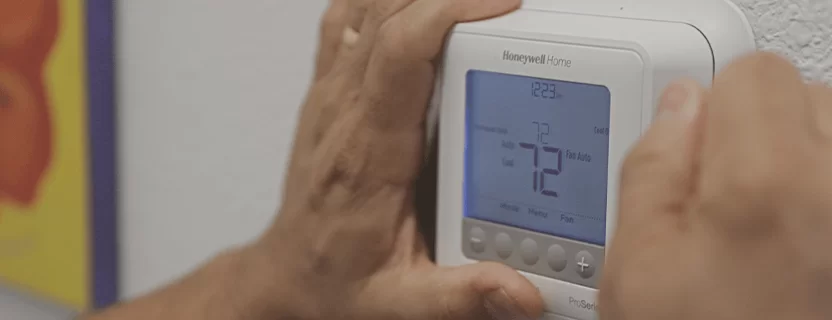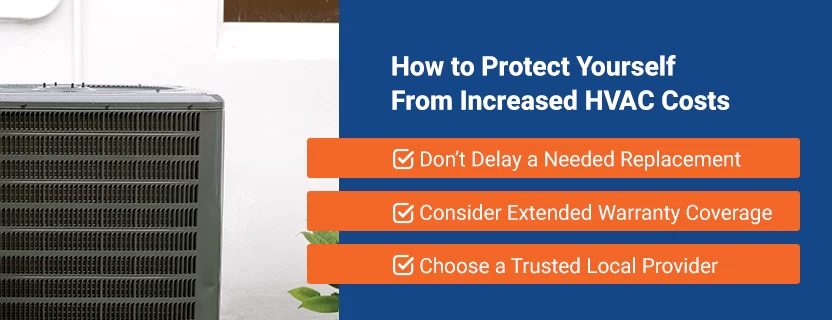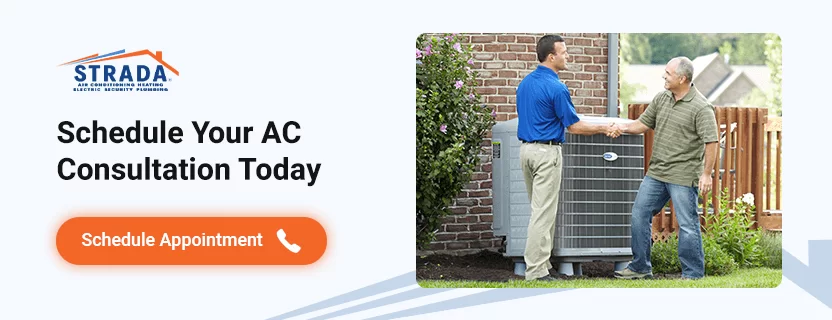
If you’ve been thinking about upgrading your air conditioning system or need HVAC repairs, you may have heard about the buzz about tariffs and how they’re affecting prices. It’s not just industry talk — these changes are beginning to affect homeowners across Florida and the Southeast in real ways.
At Strada Air Conditioning & Heating, we want to help you stay informed while showing you the steps we’re taking to minimize the impact of HVAC tariffs on your wallet. From offering special financing options to stocking up on parts and systems ahead of price hikes, we’re here to help you cope with the rising costs.
A tariff is a fee the government adds to products coming from other countries. When tariffs are increased, so do the prices of the goods that are brought in.
In April 2025, the U.S. government increased tariffs on imported products, including those used in heating and air conditioning. Since a large percentage of air conditioning machine parts are imported from tariff-affected countries like Canada, Mexico and China, there’s been a tremendous rise in HVAC costs.
Why should homeowners care? These extra costs don’t stop at the manufacturer or importer. They get passed down the line. Here’s how.
The U.S. government has placed a 25% tariff on steel and aluminum, which are used to make key components in HVAC systems, including ductwork, AC coils, unit structures and more. Because of the increase, manufacturers will pay more for materials, increasing the cost of heating and cooling systems in general.
Even if you’re not ready for a full system replacement, the cost of repairs has also risen. Many HVAC components — from motors to fan blades — are sourced from abroad and now come with higher price tags due to tariffs.
If your system needs a major repair, such as a new compressor, it may now cost significantly more than it would have just a year ago.
Tariff rules are changing rapidly. Some were paused, then reinstated. Some were increased overnight. This unpredictability makes it harder for HVAC companies to plan inventory or set stable prices, which can lead to even more frequent price changes for consumers.
Strada Air Conditioning & Heating is committed to helping Florida homeowners beat the heat and keep up with the increasing tariffs, without going over budget. While we can’t control global trade policies, we can control how we respond — and that means putting our customers first.
Here’s how we’re helping homeowners survive the impact of tariffs on HVAC prices.
To avoid passing on higher prices to our customers, we acted early. Strada Air Conditioning & Heating has secured an inventory of air conditioning systems and essential parts before tariffs took effect. This allows us to offer better pricing for a limited time while other providers may be facing steep price hikes.
If you’re considering replacing your old unit, now is a smart time to act — before the pre-tariff stock runs out.
One of the smartest ways to protect yourself from tariffs on HVAC equipment is by choosing a new system with extended parts and labor warranties.
At Strada Air Conditioning & Heating, we offer 10-year labor warranties on qualifying installations, as well as manufacturer’s parts warranties. This coverage gives you peace of mind knowing that if a part needs to be replaced in the future, you won’t be stuck paying higher prices due to tariffs.
It’s just one more way we’re looking out for homeowners who want long-term comfort and protection.
We know that HVAC problems can come up suddenly, and many families aren’t prepared for a large upfront expense. That’s why we offer special financing options to make it easier to afford a new system or major repair.
Whether you’re replacing your AC before summer or upgrading for long-term energy savings, our financing plans allow you to spread out payments in a way that fits your budget.
We have strong partnerships with top air conditioner manufacturers. Thanks to these relationships, we can often negotiate better pricing, which helps keep your costs lower.
We also remain in regular contact with our suppliers to stay updated on the pricing of specific HVAC models. This means we can offer you the best value, whether you’re looking for a high-performance system with all the latest features or a more affordable, reliable option that gets the job done.

Home comfort is no longer just about choosing the most efficient system — it’s also about timing. Decisions you make now could save hundreds, or even thousands, in the long run. That’s why staying informed is more important than ever.
While the global trade landscape is outside your control, there are steps you can take as a homeowner to protect yourself from rising heating and cooling costs. Here’s what we recommend.
Delaying an HVAC system replacement could cost you more later. As inventory runs out and tariffs drive up prices, waiting to replace your aging unit could mean paying more for a new unit and waiting longer.
If your system is more than 10 years old, struggles to cool your home or needs frequent repairs, now is the time to talk to your local HVAC company about your options.
A new system with a strong warranty will help protect you from future price increases in parts and labor. Ask your technician about coverage options and what’s included in your estimate.
Working with a family-owned company like Strada Air Conditioning & Heating means getting expert advice, honest pricing and the kind of long-term support that national chains simply can’t offer.
Whether you need to repair or replace your air conditioner or simply need AC maintenance services for your Florida home, you oughta call Strada. We’ve been working with Florida homeowners since 2003, and our founder, Joe Strada, has been in the home comfort business since 1984 — a testament to our ability to provide services our customers can count on.
Our friendly team is available to offer phone support 24/7, so schedule a service appointment with us today, and we’ll send out a technician to help you as soon as possible. You can also contact us online for more information about tariffs and how they’re affecting HVAC services in Florida.
